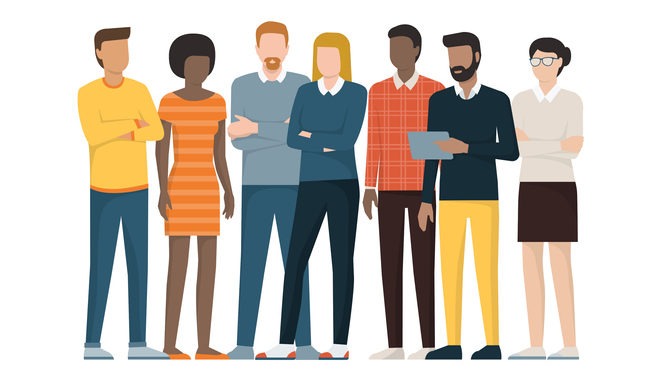
René Carayol discusses how to address yours and other people’s racial microaggressions at work
CREDIT: This is an edited version of an article that originally appeared on Management Today
I was once privileged to be the host of a leadership event at the luxurious King Juan Carlos Hotel in Barcelona. Before the day commenced, I decided to take a breath of fresh air outside to gather my thoughts, when a brand-new Rolls-Royce pulled up.
A chauffeur in a smart grey uniform jumped out and held the door open for a radiant, middle-aged woman in finest haute couture, her hair immaculate and finished off with just a touch of stylish jewellery. The chauffeur stepped behind her and lifted an expensive fur coat from her shoulders and placed it over her arm.
There I was in my regular business attire, a dark suit and a white shirt. The woman approached me and asked where the convention was taking place. I told her it was on the lower ground floor in the ballroom. Placing the fur coat over my arm, she thanked me and walked off through the sliding doors.
I was so shocked that I didn’t even respond.
This is unconscious bias at work, and there was a time that this would either go unanswered, or she would be the one to have received an apology from the recipient of the unwelcomed institutionalised racism.
When I eventually pulled myself together, I smiled wryly and wandered into the auditorium with the fur coat still on my arm. A loud voice came over the PA system saying, “A warm welcome to your host for the day, René Carayol”.
I walked quickly and went straight onto the stage. Having greeted everyone, I told them the story of how the fur coat happened to be over my arm. The audience gasped out loud, laughed nervously, and were obviously embarrassed on behalf of our well-groomed lady. Many were quietly pleased it hadn’t been them who had made a similar transgression.
I pointed out that, perhaps, wrong assumptions were one of life’s best learning opportunities and it would be great if my newfound friend would come up onto the stage to get her coat back. The audience cheered loudly, but nobody moved.
By now many people in the audience were smiling, nudging each other and looking around for our friend. As I started to ask again, the house lights were turned up and, eventually, she got up and started her long and lonely walk to the conference stage.
To her credit, while being really sheepish and embarrassed, she picked up the microphone and apologised to me most profusely and then apologised to the audience, before taking her coat and melting back into the audience.
What to do about gaffes
For far too long these major offensive ‘gaffes’ have not been called out. Many victims feel the overarching need to ‘fit in’, or fear being labelled ‘difficult’; they may just see it as career-limiting to speak out. But those days have to be put in the past. Leaders must now:
- Encourage their colleagues to speak up without fear.
- Enable people to hold each other to account for inappropriate behaviours.
- Focus on their teams collaborating, working together and getting to know each other.
- Talk openly about, and celebrate, difference.
- Establish an inclusive working environment where people can be their authentic selves.
At the end of a long and positive day, my very last act as host was to take a huge bouquet of flowers into the audience and present them to my new friend. She was really taken aback, and her nervous smile lit up the auditorium. She got a standing ovation from the audience for having been big enough to recognise her mistake, and yet still stay on throughout the day.
We were to become good friends and, the next time I was in Barcelona, I met up for dinner one evening with her and her husband, and we were able to laugh heartily as we recounted the story of the fur coat.
We all have to be big enough to forgive the microaggression, but never be afraid to call it out.
René Carayol is a leading executive coach, author and speaker



Be the first to comment